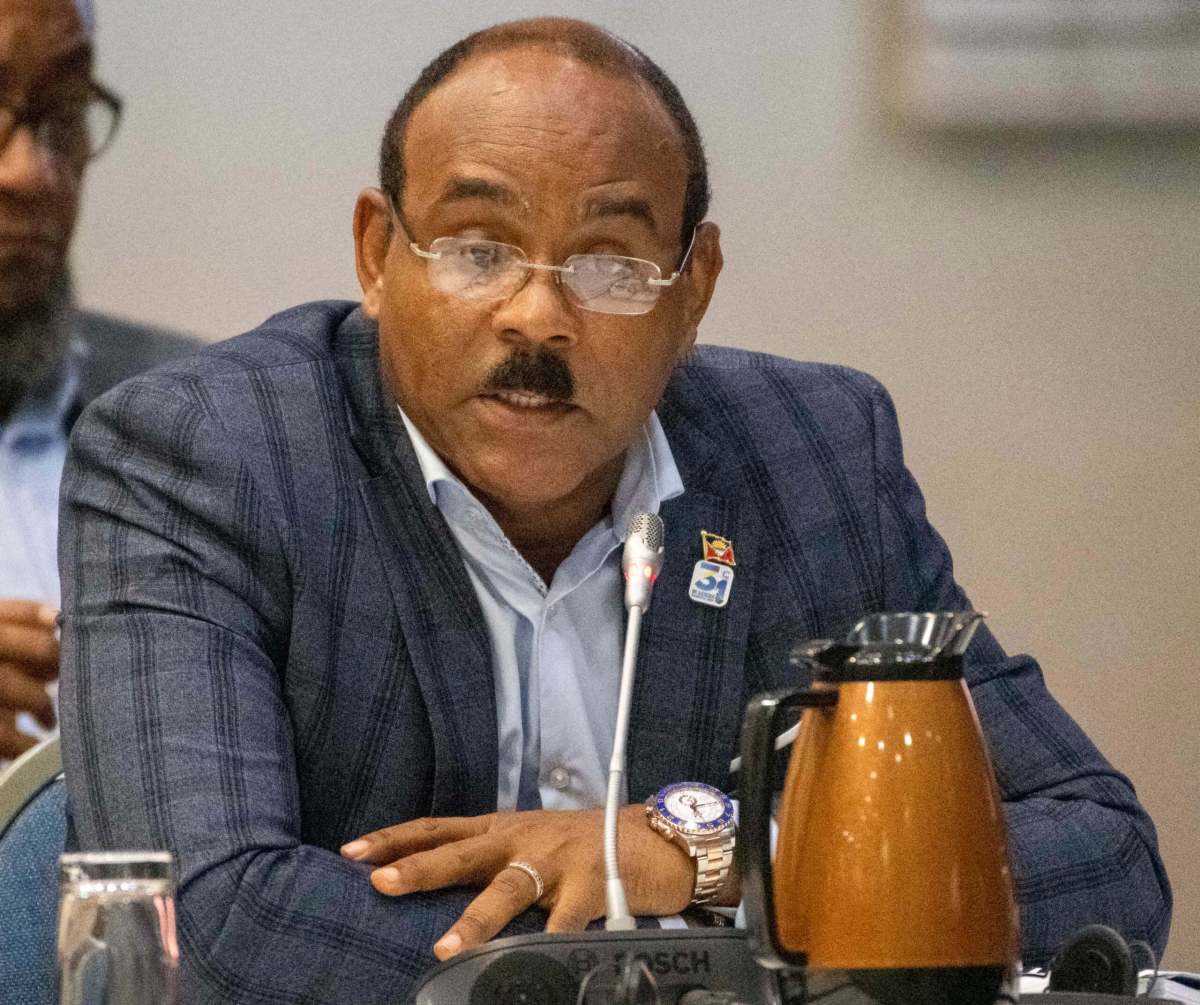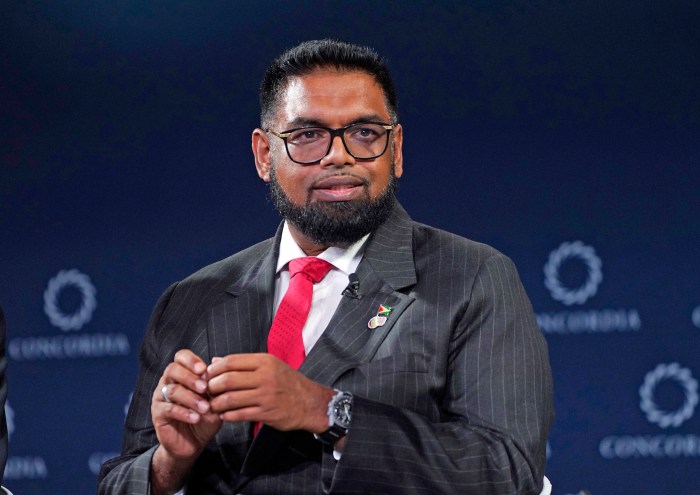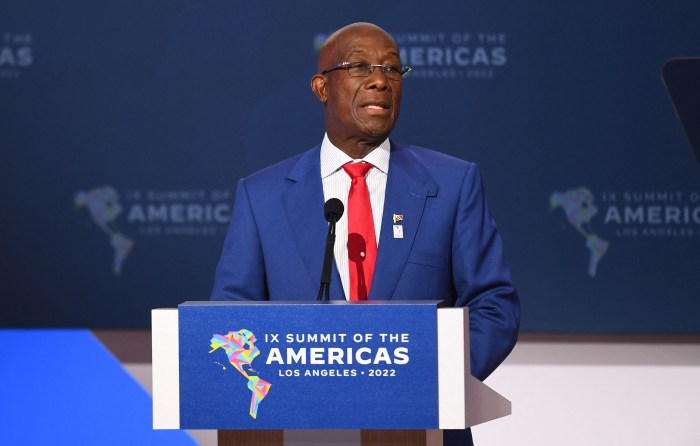Antigua
Antigua and Barbuda Prime Minister, Gaston Browne has announced that persons who are in COVID-19 quarantine will be mandated to wear tracking bracelets and the devices are already on the island and will be used as soon as they are programed and tested.
The bracelets are equipped with temperature and heart monitors so people will not have to manually send this information to the health officials. They are also tamper proof and will send alerts to officials if someone opens, cuts the straps, breaks or in any way damages the device.
Antigua and Barbuda has recorded 141 cases of COVID-19, seven of which are active. There are 72 individuals in home quarantine while 13 are in state quarantine.
Bahamas
Bahamas National Commission on Marijuana (BNCM) said the United Nations’ (UN) removal of cannabis from its list of dangerous drugs signals the likelihood of the global legalization of marijuana.
BNCM chairman Quinn McCartney comments follow a historic vote at the UN Commission on Narcotic Drugs recently to remove cannabis resin from its list of the “world’s most dangerous drugs.”
The commission voted 27-25, with one abstention, to follow the World Health Organization’s recommendation to remove cannabis and cannabis resin from Schedule IV of the 196 Convention on Narcotic Drugs, where it was listed with heroin and several other opioids.
McCartney said the vote was consistent with the commission’s views to prioritize medicinal marijuana.
He said the commission supports the view that “our law should be amended to facilitate easy access to medicinal cannabis products for use in The Bahamas.”
The BNCM chairman noted that countries to the south and north of The Bahamas are moving towards legalization and that will have to be taken into consideration as the country rethinks its position on a number of things.
Barbados
Barbados Medicinal Cannabis Licensing Authority (BCLA) is moving ahead with plans to develop a medicinal cannabis industry.
This was revealed by BCLA chief executive officer Dr. Shantal Munro-Knight said despite some setbacks attributed to the COVID-19 pandemic, interest in the lucrative industry remains extremely high among prospective investors, who will be able to submit applications and proposals as early as next month.
She said great interest is being shown by international investors, but stressed that locals should not be discouraged by the perceived high costs associated with the sector.
According to CEO, in some cases the cost of licenses is five times cheaper than those in other Caribbean countries and the BCLA has been working to reduce infrastructural costs and procedural inefficiencies that have made life very difficult for locals in other cannabis-growing Caribbean countries.
Munro-Knight said Canadian investors, in particular, are expressing the strongest interest in the industry that is said to be still in high demand across the globe for its usefulness in the treatment of numerous mental and physical health conditions.
Caribbean
The Caribbean Private Sector Organization (CPSO) and the Caribbean Community (CARICOM) have signed a Memorandum of Understanding (MoU), which establishes the legal framework for cooperation and collaboration between the private sector and the Community, as mandated by the CARICOM heads of government.
Gervase Warner, CPSO chairman, vice president and CEO of Massy Group and CARICOM Ambassador, Irwin La Rocque, signed the MoU.
The CPSO was officially conferred the status of an Associate Institution of CARICOM on Oct. 29, at the 41st Regular Meeting of the Conference of Heads of Government of the Caribbean Community.
Warner said the MoU represents an important element of the more structured engagement envisaged between the Caribbean Community and the private sector and outlines the areas of co-operation towards the full implementation of the Caricom Single Market and Economy (CSME). He said recognizing the private sector is well-placed to contribute positively to the CSME regimes of free movement of goods, services, labor and capital.
Grenada
The Grenada government is moving to increase the fines for any breach of the quarantine regulations aimed at curbing the spread of the coronavirus (COVID-19) pandemic.
The government, which controls all 15 seats in the legislative chamber, will amend the 1947 Quarantine Act to increase the penalty for individuals who breach the quarantine regulations which is currently EC$10,000 to EC$25,000 and one year in jail.
To date, five people, including two American nationals have been charged under the existing legislation. The magistrate who dealt with the matter ordered fines ranging between EC$3,000 and EC$5,000.
There are now 44 active cases with 39 of those cases related to a new cluster at the Sandals Resort, which was confirmed on Dec. 12.
There has been no deaths but now there are indications of community spread.
Guyana
Guyana has issued new emergency coronavirus (COVID-19) guidelines for December as other Caribbean countries implement new measures to curb the spread of the virus that has infected more than 282,282 people and killed nearly 6,000 in the region.
The government said the new measures would also provide new guidelines for travel to Region Seven and to Suriname and that the curfew remains the same for this month, with lock down hours from 10.30pm to 4 a.m.
Non-essential travel into or out of Cuyuni-Mazaruni (Region Seven) is restricted for the entire month of December and travel will only be permitted where it is connected to an essential service, according to the Official Gazette, which was issued last week.
Travel to Suriname via Moleson Creek Crossing will be opened from Dec. 12. All operators and passengers must comply with the precautionary port health measures, the authorities said.
Travel to the neighboring country was halted and the Guyana-Suriname Ferry Service closed, following Guyana’s first COVID-19 case on March 14, prompting the shutdown of all ports of entry.
Guyana now has 5,406 positive cases with 151 deaths.
Trinidad
The Trinidad and Tobago government will receive 461,000 COVID-19 vaccine doses, to inoculate a third of the population amid the ongoing pandemic.
This was revealed by Prime Minister Dr. Keith Rowley who told Parliament last week that in September, T&T had signed up to the Cova facility so as to get equal access to vaccines whenever they are approved by the World Health Organization (WHO).
He said once a vaccine is approved “we will receive in the first instance, enough vaccine for 20 percent of the population that is 279,000 persons.”
The prime minister said T&T has pre-ordered vaccines to cover 33 percent of the population- that is 461,000 persons, at a cost of TT$9.7 million, adding that the government has already made a payment of TT$1.477 million.
Rowley said priority will be given to high-risk groups, namely “elderly persons over 60, those with non-communicable diseases, health care and other front-line workers and those who are suffering from lupus or cancer. They will be our first citizens to access the vaccine.”
T&T has recorded a total of 6,879 positive cases of covid-19 since March this year with 122 deaths as of Dec. 5.
— Compiled by Azad Ali























